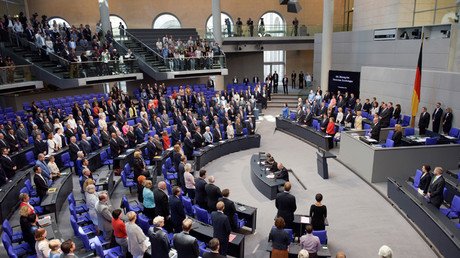German foreign intelligence spied on Interpol for more than a decade – report

The German Foreign Intelligence Service (BND) has been snooping on the offices of the International Criminal Police Organization (Interpol) all over the world for many years, Germany's Der Spiegel reports, citing a confidential report.
The BND spied not only on Interpol headquarters in the French city of Lyon, but also on a number of the organization’s liaison offices located in Austria, Denmark, Belgium, Greece, Spain, Italy and the US, the German magazine reports, citing the report it had seen, adding that the agency carried out its surveillance activities on Interpol since at least 2000.
In total, more than a dozen Interpol offices located in various regions of the world, ranging from Russia to Latin America, were under BND surveillance. The agency included the email addresses, phone and fax numbers of Interpol officers working in these offices on its surveillance list, helping its agents find data related to the activities of Interpol investigators on the internet.
However, BND surveillance activities over international police organizations were not limited to spying on Interpol, as the German agency also collected data related to the activities of the European police organization, the Europol, Der Spiegel reports, citing the same confidential report.
German intelligence spied on the Europol headquarters located in The Hague, the Netherlands, as well as on a large number of the national police services, the magazine says, without revealing further details.
The BND refused to comment on the new revelations concerning its surveillance activities. It spokesman said that his agency answers for the “operative aspects of its work” only to the German government and certain relevant committees of the German parliament.
The German government also refused to provide any comment. “The federal government gives accounts concerning the intelligence affairs only to the parliament’s commissions,” the governmental spokesman said, as cited by Germany's dpa news agency.
In the meantime, the report provoked angry reaction among some German lawmakers. Konstantin von Notz, an MP from the Green Party and a member of the parliament’s investigative committee, slammed the BND's spying activities as "scandalous and unfathomable.”
"We now know that parliaments, various companies and even journalists and publishers have been targeted, as well as allied countries," von Notz said, referring to the BND’s surveillance activities.
He also said that the latest revelations demonstrate the ineffectiveness of parliamentary oversight, as well as faults in the system of legal restrictions imposed on the intelligence service. "It represents a danger to our rule of law," he said, as cited by Reuters.
In October 2016, the German parliament approved a bill granting the intelligence agencies wider powers, including spying on EU facilities, but also introducing broader oversight. The law was criticized as “unconstitutional” at that time.
It is not the first surveillance scandal involving the BND. In late February 2017, Der Spiegel reported that the intelligence service had snooped on Western news media outlets and international news agencies since 1999.
The list of its surveillance targets included more than a dozen of contacts for BBC journalists in Afghanistan as well as the BBC central office in London and the office of the BBC World Service, alongside with some mobile phone numbers of Reuters journalists and offices in Afghanistan, Pakistan and Nigeria.
In 2013, soon after the former NSA employee Edward Snowden disclosed US mass surveillance to the global public, the German media revealed that the NSA had provided German intelligence services with spying software in exchange for data sharing, which meant that the BND assisted the NSA in conducting its global surveillance programs.
In 2015, Der Spiegel also reported that the BND had spied upon many "friendly" states, including Poland, Austria, Denmark, France, the UK and the US.















